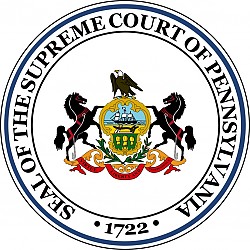 Environmental groups and local communities in Pennsylvania scored a huge victory on December 20, when the state’s Supreme Court ruled against the establishment of a statewide zoning plan for oil and gas fracking. The anti-fracking ruling affirmed an earlier decision by a lower court to strike down the parts of Act 13, a state law passed just last year, in February 2012.
Environmental groups and local communities in Pennsylvania scored a huge victory on December 20, when the state’s Supreme Court ruled against the establishment of a statewide zoning plan for oil and gas fracking. The anti-fracking ruling affirmed an earlier decision by a lower court to strike down the parts of Act 13, a state law passed just last year, in February 2012.
The state’s Department of Environmental Protection had characterized Act 13 as a positive development that imposed “stronger environmental standards” on fracking, an unconventional drilling method that involves pumping a chemical brine deep underground. However, Act 13 also imposed uniform statewide standards for Pennsylvania fracking that overrode any attempt by local communities to regulate the practice more strictly.
In striking down those parts of Act 13 creating a statewide zoning plan, the Supreme Court also adopted an unexpected argument that could have an enormous impact on future energy development in Pennsylvania.
Pennsylvania and fossil fuels
If you are not familiar with energy issues in Pennsylvania, a brief recap is in order. The state is best known for its pivotal role in the American Revolution and for its agricultural activity including a thriving population of Amish farmers, but it has also been ground zero for coal, oil and gas exploitation since the 1850’s. The results have been calamitous for some communities.
Coal mining, for example, has left a continuing legacy of widespread surface undermining in Pennsylvania as well as the notorious underground Centralia mine fire (still burning after 50 years) and equally notorious Jeddo Tunnel (still contaminating local waterways despite being abandoned since 1955).
As for fracking, Pennsylvania sits squarely in the gas rich Marcellus shale region, and state legislators have aggressively promoted the industry despite unresolved public health and environmental issues that affect Pennsylvania and other shale states.
These include fugitive methane emissions, water contamination, and fracking waste disposal as well as local concerns including traffic, air pollution, property value impacts, and negative impacts on existing industries including tourism and agriculture.
As one measure of how closely Pennsylvania has been identified with fracking issues, the state was chosen as the setting for the 2012 fracking-themed film Promised Land starring Matt Damon and Josh Krasinski.
Home rule vs. statewide fracking regulations
As for the new Supreme Court ruling, the statewide regulatory plan laid out in Act 13 was opposed by numerous stakeholders including the group PennFuture, which had this to say in favor of the Supreme Court’s decision:
The result of yesterday’s decision was not necessarily surprising. Act 13’s evisceration of local land use powers was unprecedented – a “blanket accommodation of industry and development,” the Supreme Court wrote.
PennFuture was particularly pleased with the Supreme Court’s unusual basis for rejecting the statewide zoning plan. While the result was the same – an affirmation of the lower court’s ruling – the Supreme Court’s argument ran along an entirely different track.
The lower court had based its decision to strike down the statewide plan on a narrow basis, finding that it was a violation of the “substansive due process” concept that balances common interests with individual rights.
Most court observers expected the Supreme Court to adopt the same argument, but only one of the justices used it.
The Environmental Rights Amendment
Instead of relying on the narrow legal argument, a winning plurality of the justices, including Chief Justice Castille, used a much broader platform. They found that the new plan violated Article 1, Section 27 of the state Constitution, the Environmental Rights Amendment.
Here is Section 27 in full:
Natural Resources and the Public Estate
The people have a right to clean air, pure water, and to the preservation of the natural, scenic, historic and esthetic values of the environment. Pennsylvania’s public natural resources are the common property of all the people, including generations yet to come. As trustee of these resources, the Commonwealth shall conserve and maintain them for the benefit of all the people.
In ruling for the plurality, Chief Justice Castille went out of his way to argue that Section 27 has provided citizens with a new constitutional protection that had been lacking throughout the state’s “shortsighted” history of energy development.
Now you can see why PennFuture is so excited. The Article 27 argument strongly implies that statewide “blanket” regulations for energy development cannot necessarily override local public health and aesthetic concerns.
It’s also well worth noting that Castille’s argument is in close conformity with the environmental stewardship model adopted by the Department of Defense, most notably under the Army’s “Net Zero” initiative.
Although PennFuture notes that the ruling is not binding on lower courts, the expectation is that it will serve as a powerful guide to future gas and oil development in the state.
[Image: via Connormagh, wikipedia.org]
Follow me on Twitter and Google+.




























Recent Comments